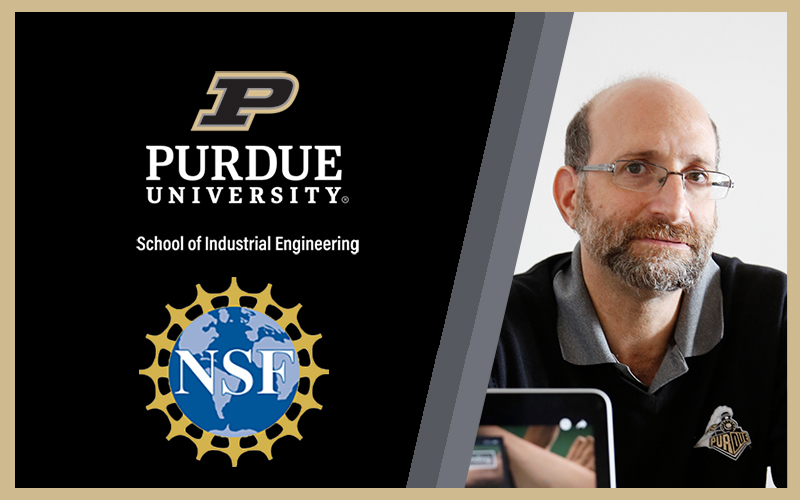Wachs Tapped as NSF Program Director
Professor Wachs is known for research in machine vision specializing in the fields of intelligent systems and human-machine interfaces. His research group works on diverse projects ranging from designing visual algorithms that are capable of recognizing human body gestures, to enabling robots to perform high level tasks with speed and efficiency even in complex environments.
“This certainly will be a great experience for Professor Wachs, bring high visibility to our School, the College and Purdue, and is a worthy service to the nation,” states Abhi Deshmukh, James J. Solberg Head and Tompkins Chair of Systems, School of Industrial Engineering.
Dr. Wachs adds, "This is an exciting opportunity for me to be part of NSF, bringing Purdue IE's perspective to the big scientific field, and to learn from top-notch scientists serving at NSF. I benefitted a lot from NSF during my academic career, and now it is the time to give back to the community."

The program, Robust Intelligence (RI), encompasses foundational computational research needed to understand and develop systems that can sense, learn, reason, communicate, and act in the world; exhibit flexibility, resourcefulness, creativity, real-time responsiveness and long-term reflection; use a variety of representation or reasoning approaches; and demonstrate competence in complex environments and social contexts.
The RI program is aimed at contributing deeper understanding and new insights in and across the disciplinary areas. Areas within RI include:
- Artificial intelligence (AI): All matters of learning, abstraction and inference required for intelligent behavior, and including architectures for intelligence, integrated intelligent agents, and multi-agent systems. Aspects of intelligence include knowledge representation, logical and probabilistic reasoning, planning, search, constraint satisfaction, and optimization.
- Machine learning: The study of algorithms and models that are able to solve tasks by generalizing from data.
- Computer vision: The ability of systems to sense and reason about the visual world. Research in this area ranges from novel work in computational imaging to methods for high-level semantic understanding of images or videos.
- Human language technologies: The ability of intelligent systems to analyze, produce, translate, and respond to human text and speech.
- Computational neuroscience: Theory and analysis of computational processes in the nervous system, including approaches to the above RI problem areas that are grounded in neural computation and neuroscience.
Related Links:
